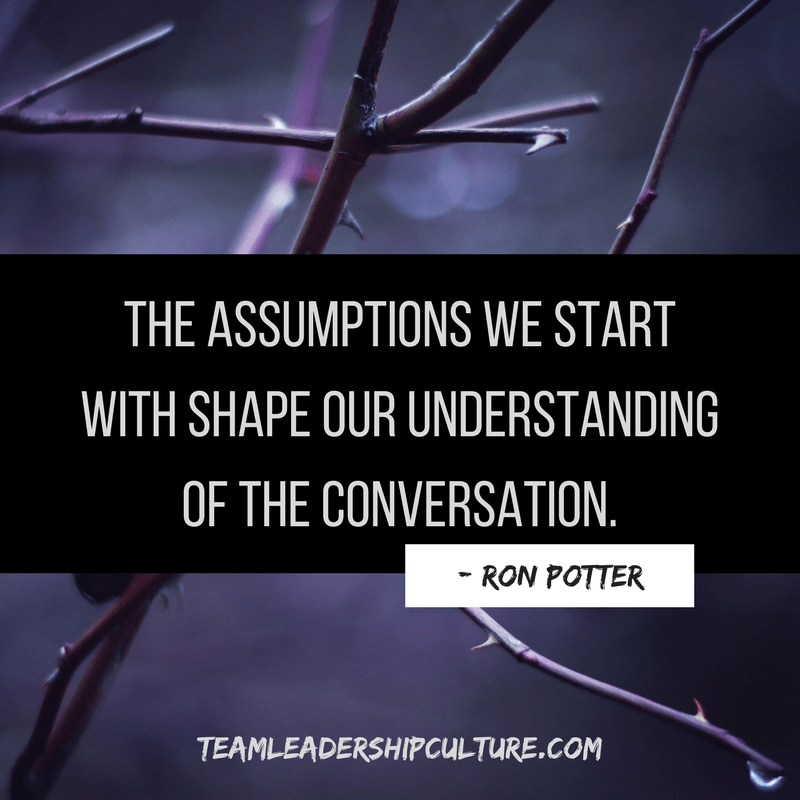Building Commitment from Unity is the last element of our TREC to build a great team. Remember that TREC is our acronym for:
Building Commitment requires the following three pieces:
- Trust in Purpose, Leader, and Team Colleagues
- Diverse Points of View
- Good Process
Purpose
Building Trust in the purpose of the team can sometimes be difficult. Often team members don’t feel they have any power to set the purpose of the team or even tweak it slightly. It seems to be dictated from on high.
It’s important to note that you always have a choice.
- You can go along with the purpose even if you don’t believe it.
- You can decide that the purpose of the team doesn’t align with your personal values or direction and make a move.
- You can be a part of building a team that’s open to the discussion about the purpose of the team to help align it with personal and corporate goals.
Going Along
Going along, even when you don’t believe in the goal can be a dangerous route. Going along will make it difficult getting out of bed in the morning and headed out to a job you don’t believe in. Not speaking up when you don’t agree with the purpose and direction has been directly linked to some of the more horrific events in life. Be very careful about making this choice, it will affect your well being and may affect the well being of others.
Make a Move
Making a move can also be a difficult decision. The need for security plays a big part in our lives and making a move means leaving what we know, even if we’re uncomfortable and moving into the unknown. The unknown is always scary. However, I have seen this play out in my life and the lives of many of the people I’ve worked with through the years. If you need to make that move, make it! Dealing with the scariness of the unknown is much better in the end that living with the consequences of staying in a place that isn’t right for you.
Build a Great Team
Being part of a great team gives us much better options in life. Building a great team starts with being able to speak the truth with each other.
All good teams start difficult discussions by being open to everyone’s beliefs and assumptions about the topic. When we understand that we’re not necessarily speaking a “truth” but only our beliefs and assumptions based on our unique lifetime of experiences, it’s easier to state a position that may be very different from the expected purpose.
By starting with beliefs and assumptions, teams can often reach a unique solution that everyone sees as positive and leads to team commitment. However, keep in mind that this process may lead you back to options one or two, going along or making a move. I don’t believe going along is ever a good option but if it leads to the need to make a move, it will be much easier to accomplish and will happen with the support of many team members which will make the decision much easier to make and execute.
Trusted Leader
Having a trusted leader for the team is also key to developing commitment. There are eight great attributes of trusted leaders but the first and most powerful one is Humility. It almost seems like a paradox or dichotomy but humble leaders are very confident and have great self-esteem. They just don’t wield either one of them like a sword. They remain very open to listening and learning from anyone and any circumstance. Research confirms time and time again, that the number one reason people leave a position is because of their boss. If you’re the leader, develop into a trusted leader. If you’re a team member, mentor your boss (mentors are not simply the older person).
Trusted Colleagues
Trusted colleagues possess two great qualities: They are truthful and they are respectful. This combination of truth and respect can be found throughout history and has a great biblical foundation. This series of Team Building started with those two attributes, truth, and respect!
Committed
Teams must be committed to the purpose, the leader, and their colleagues in order to build great teams. When you see it in action, there’s nothing quite like it. And, there’s nothing more thrilling than being a part of it. If you’re not experiencing that kind of joy in your life, figure out why you or others are not committed to the purpose, leader, and members of your team. Today!





















